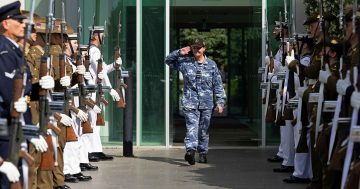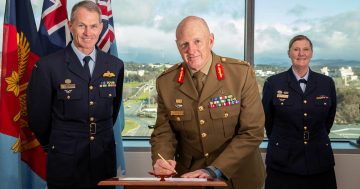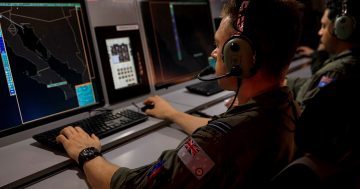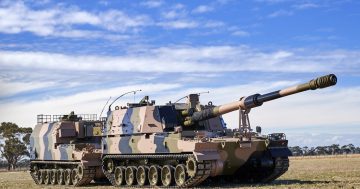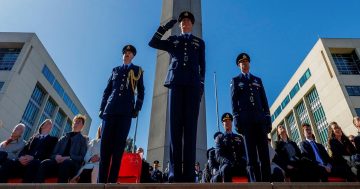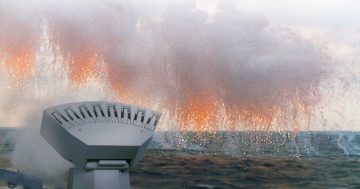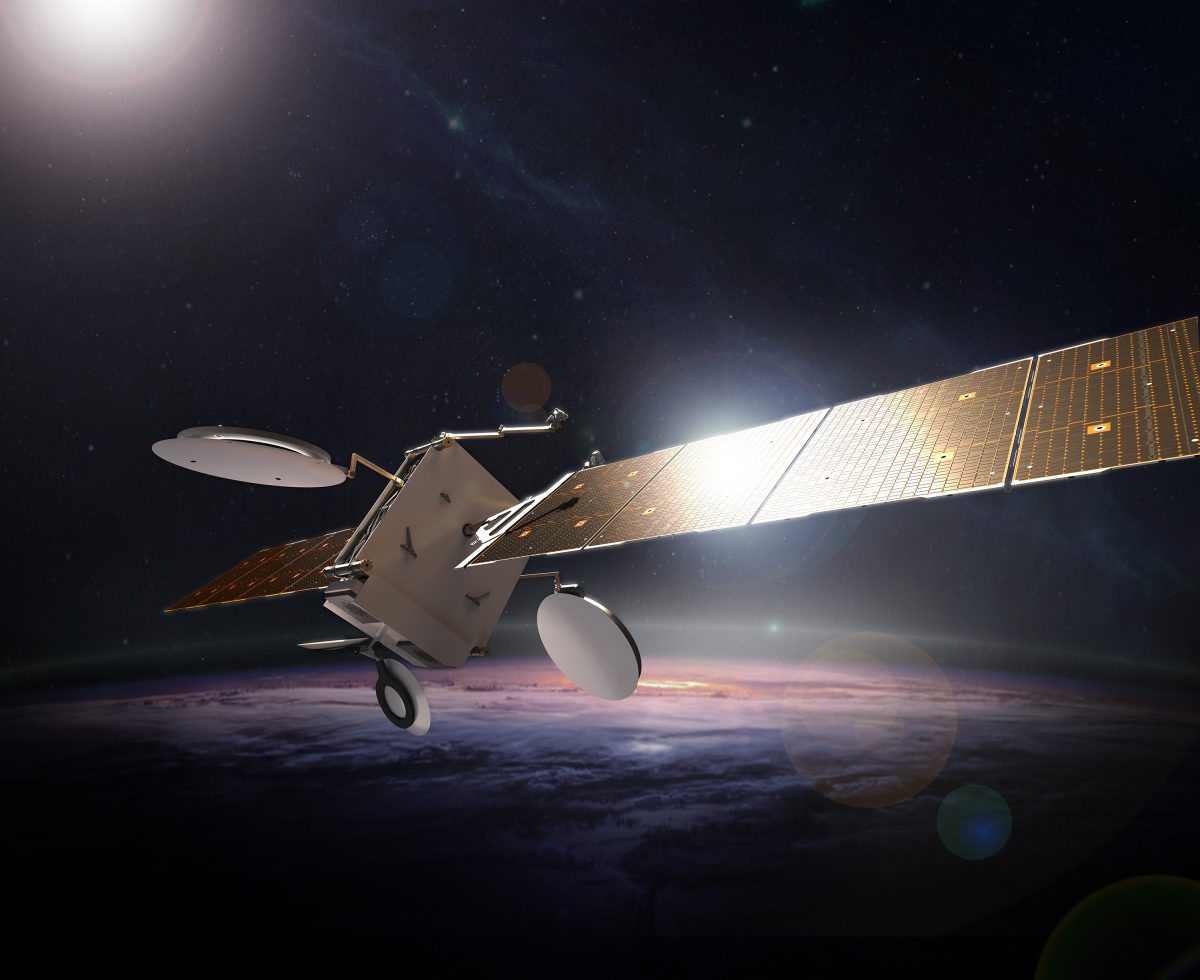
Boeing has offered a solution for JP 9102 based on developing the current WGS constellation featuring its 702X’ bus’. Image: Boeing.
Like most militaries, the Australian Defence Force has traditionally fielded three main branches covering land, sea and air – the Army, the Royal Australian Navy and the Royal Australian Air Force.
But earlier this year, the ADF established a fourth branch – Defence Space Command.
Where once space capabilities were viewed as an adjunct to land, sea and air operations, it is now viewed as an operational domain in its own right. And while it falls under the Air Force’s structure so is not technically a stand-alone branch, Space Command will manage all of the ADF’s activities in space across all three branches.
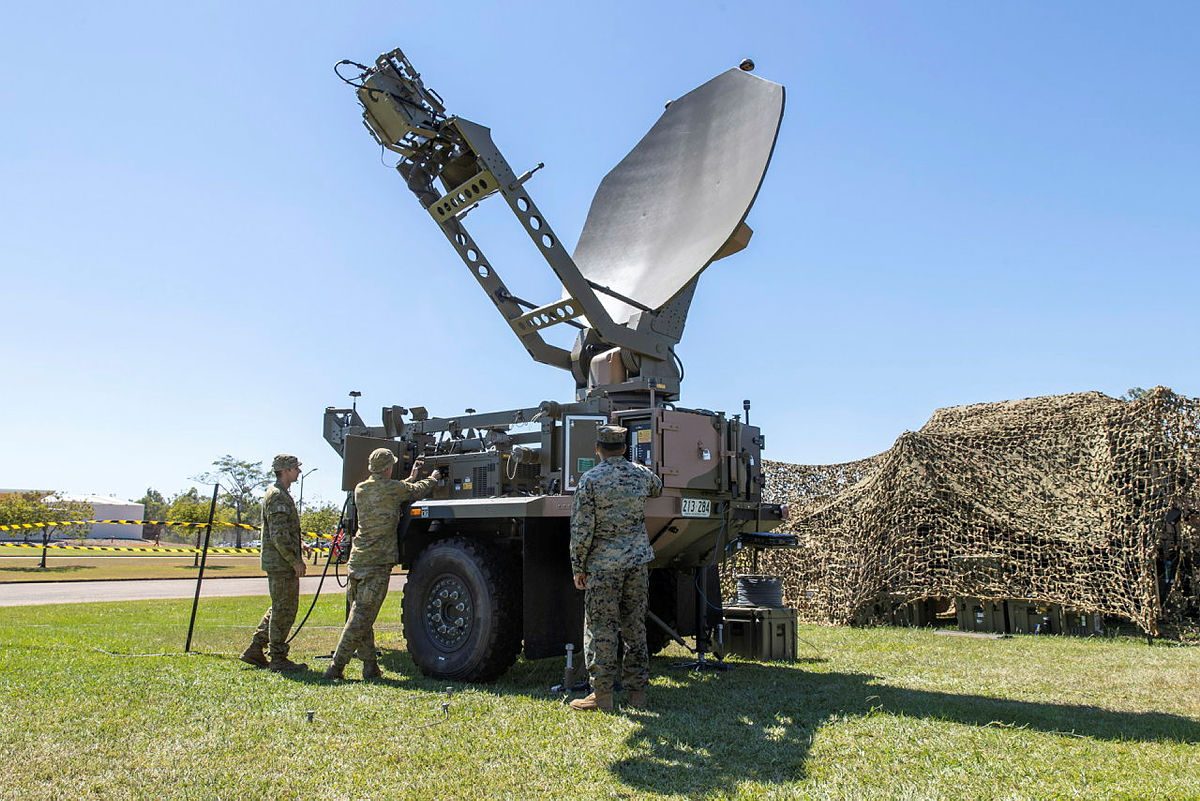
Project JP 9102 will give Australia its own sovereign satellite communications capability. Photo: CPL Rodrigo Villablanca – ADF.
Space Command commenced operations when it was launched at the Air and Space Conference in Canberra by former Defence Minister Peter Dutton in March.
While Mr Dutton acknowledged Australia’s tentative foray into space as “modest” compared to similar commands being established in the US and other countries, he described it as a “necessary endeavour with a view to protecting our national interests and our need for a Space Force in the future”.
“Space is becoming more congested and is already contested – particularly as the boundaries between competition and conflict become increasingly blurred through grey-zone activities,” he said.
“While space is primarily a civil domain … it will undoubtedly become a domain which takes on greater military significance in the 21st century.
“Defence Space Command is Australia’s contribution towards a larger, collective effort among like-minded countries to ensure a safe, stable and secure space domain. By developing our sovereign space capabilities, we will not only become more self-reliant but also be a better ally and partner through the combined effects of our capabilities.”

Air Vice-Marshal Catherine Roberts, Commander of Defence Space Command, at the Defence Space Command Headquarters opening at Fairbairn in Canberra in March. Photo: ADF.
The new command is led by an Air Force 2-star officer, Air Vice-Marshal (AVM) Cath Roberts, and has drawn its initial cadre of personnel from all three services, from Defence public servants and industry contractors, and the Australian Space Agency (ASA).
Australian capabilities currently deployed in space are limited, with just a military satellite communications (MILSATCOM) payload hosted aboard Singapore’s Optus C-1 satellite, and a minor stake in the US’s Wideband Global Satellite (WGS) communications constellation. But there are bigger plans afoot.
The tall pole in the space tent is the ADF’s Joint Project (JP)9102 sovereign MILSATCOM requirement which aims to give Australia sovereign control over its own communications, rather than relying on payloads or systems owned by other nations. The stakes for JP 9102 are high – literally and figuratively – and five large industry teams are bidding for this project, the tenders for which closed earlier this year.
Lockheed Martin Australia has brought together a large group of Australian small-to-medium enterprises (SME), including Blacktree Technology, DXC Technology Australia, Conscia, Av-Comm, Calytrix Technologies, EM Solutions, Shoal Group, Clearbox Systems, STEM Punks, and Ronson Gears for its bid; Boeing Defence Australia has teamed with Leidos Australia, Viasat, Saber, Clearbox, and the Indigenous Defence and Infrastructure Consortium (IDIC); Airbus has joined with SSTL, UGL, Microsoft, Clearbox, Blacktree, and Willyama for its ‘Team Maier’ offering; Northrop Grumman Australia has joined with L3Harris and Inmarsat; and Optus has teamed with Raytheon Australia and Thales Australia.
The JP 9360 requirement will develop a Defence Space Domain Awareness (SDA) capability that will allow objects in orbit to be identified, catalogued and tracked, from the smallest piece of trackable space junk to large satellites.
The JP 9358 requirement was announced in June 2021 and will develop a ground-based space electronic warfare capability that will seek to detect and deter attempts to interfere with or attack space-based assets such as satellites.
JP 9360 will likely hit the ground running as a high-fidelity SDA capability is already operating in Australia through the University of Tasmania and Hensoldt Australia. Other companies are also building ground-based sensors that can be networked with other sensors.
When she was appointed, AVM Roberts expressed a desire to move quickly on these and other projects.
“Our mission is to assure Australia’s access to space,” she told a media briefing.
“We really need to make sure that Australia’s reliance on services from space are protected, not just the military elements.”
She said they needed to be able to deliver and contribute space capability much faster than was planned in the Defence Integrated Investment Plan.
“I am doing a complete architecture review,” she said.
“I have some really good ideas about how we can deliver capability far more quickly than we have in the past.”
Whether her ambitious plans have been thwarted by the new government or the recently launched Defence Strategic Review remains to be seen.












